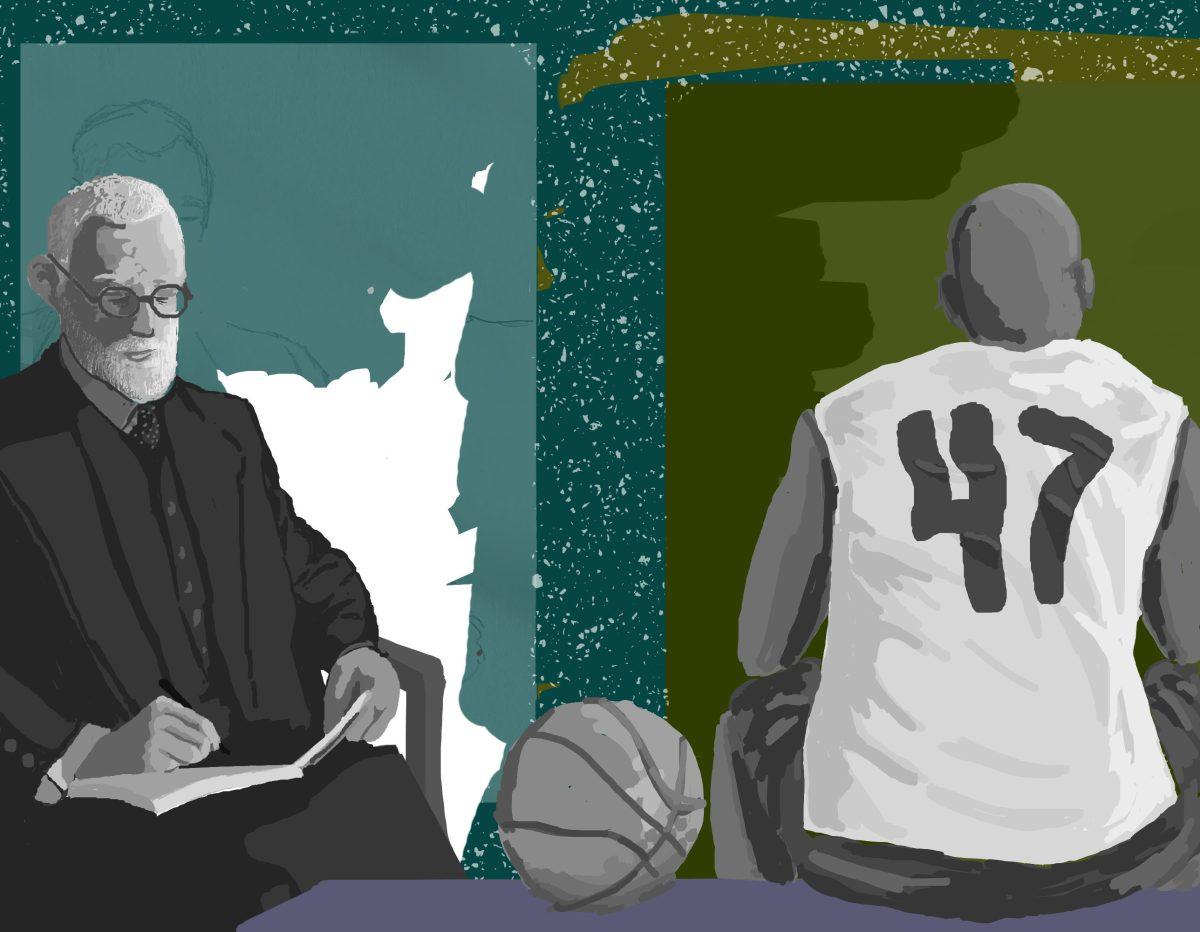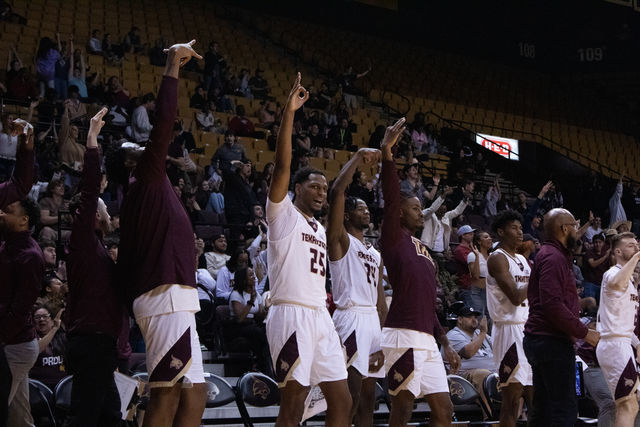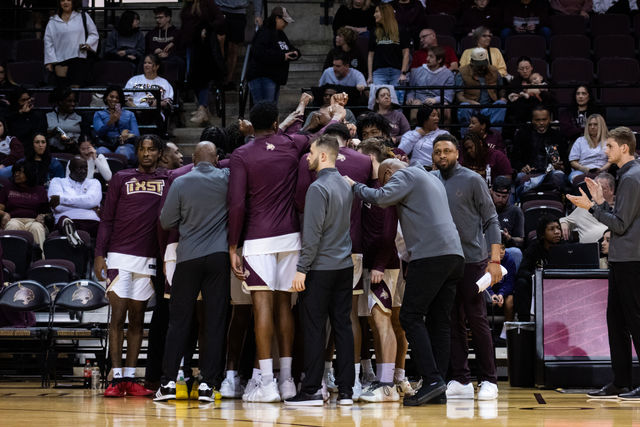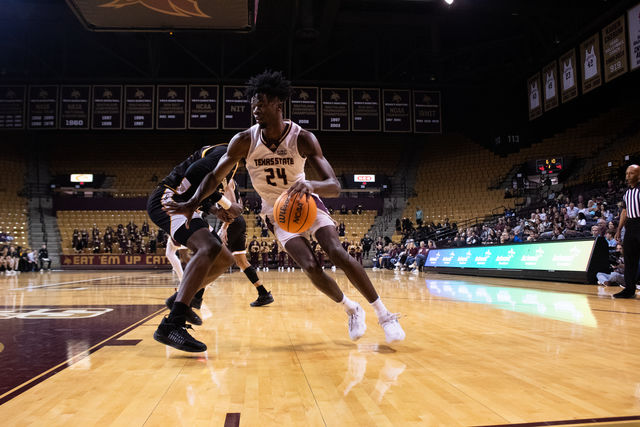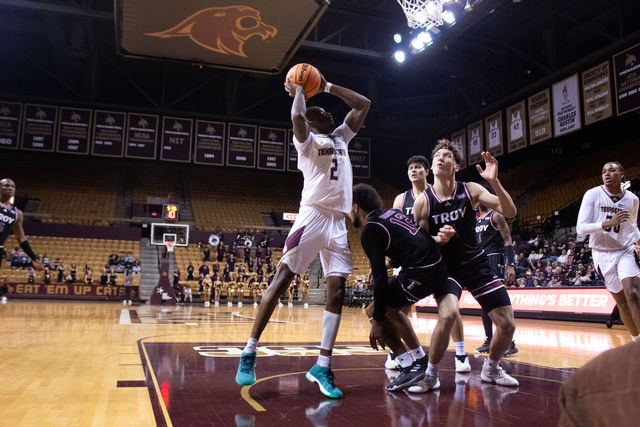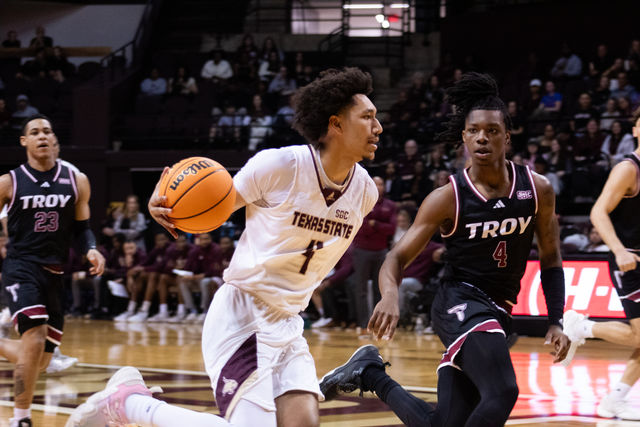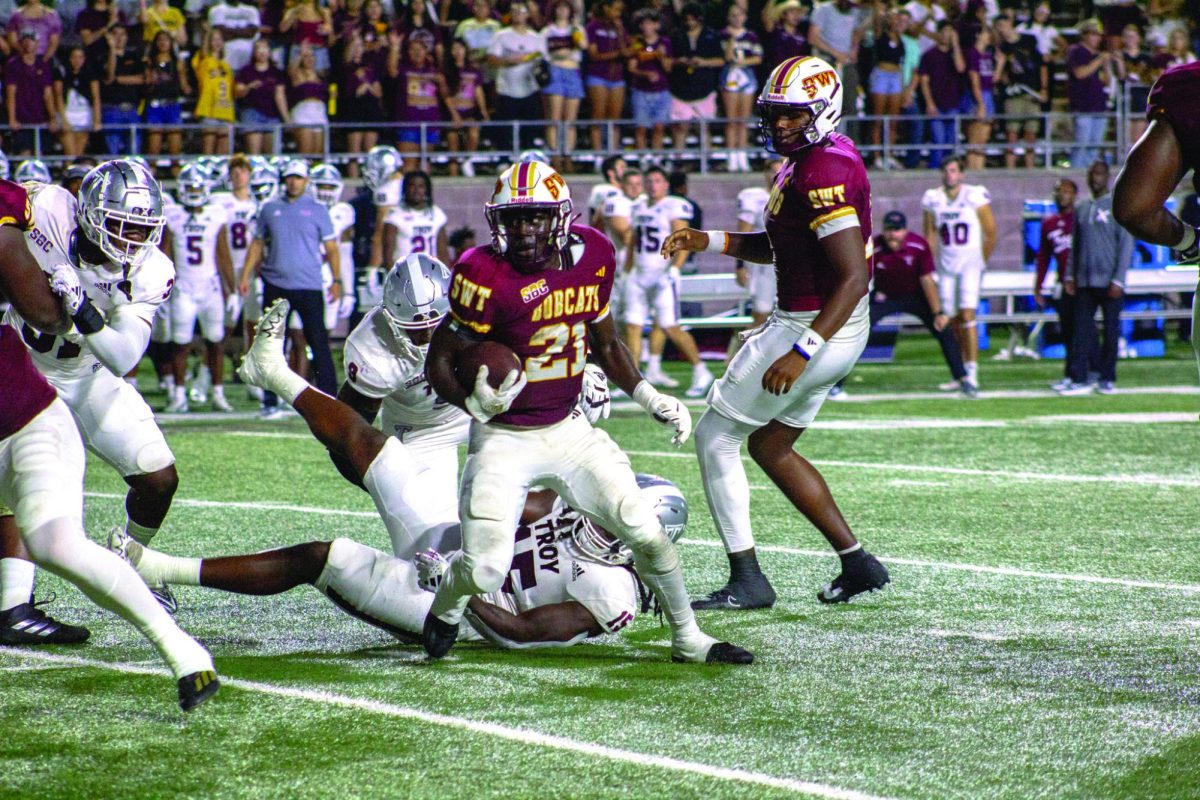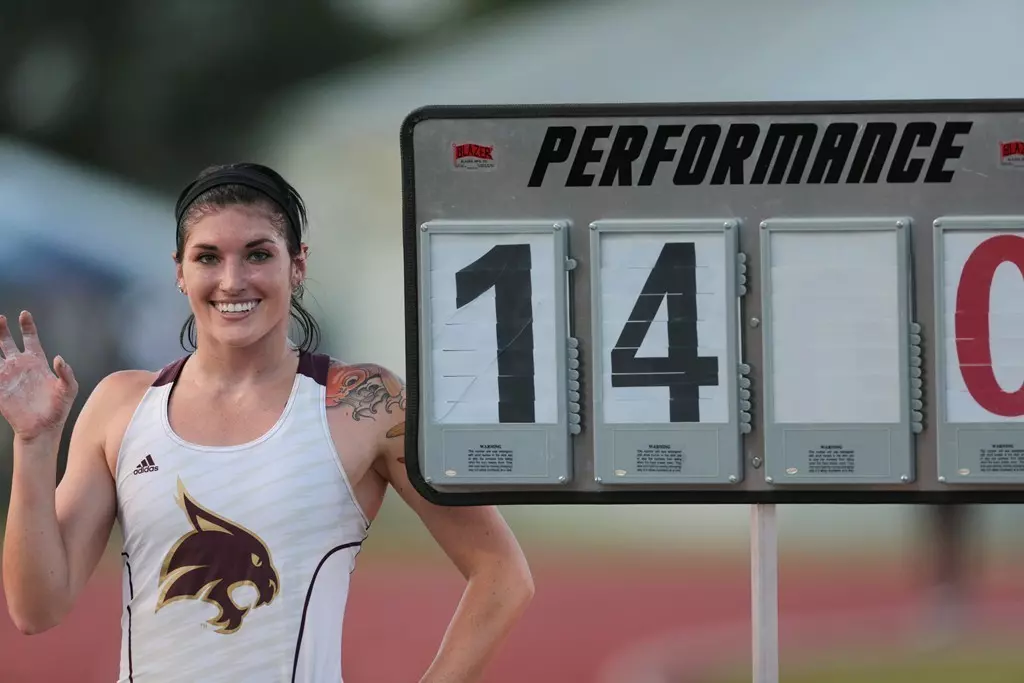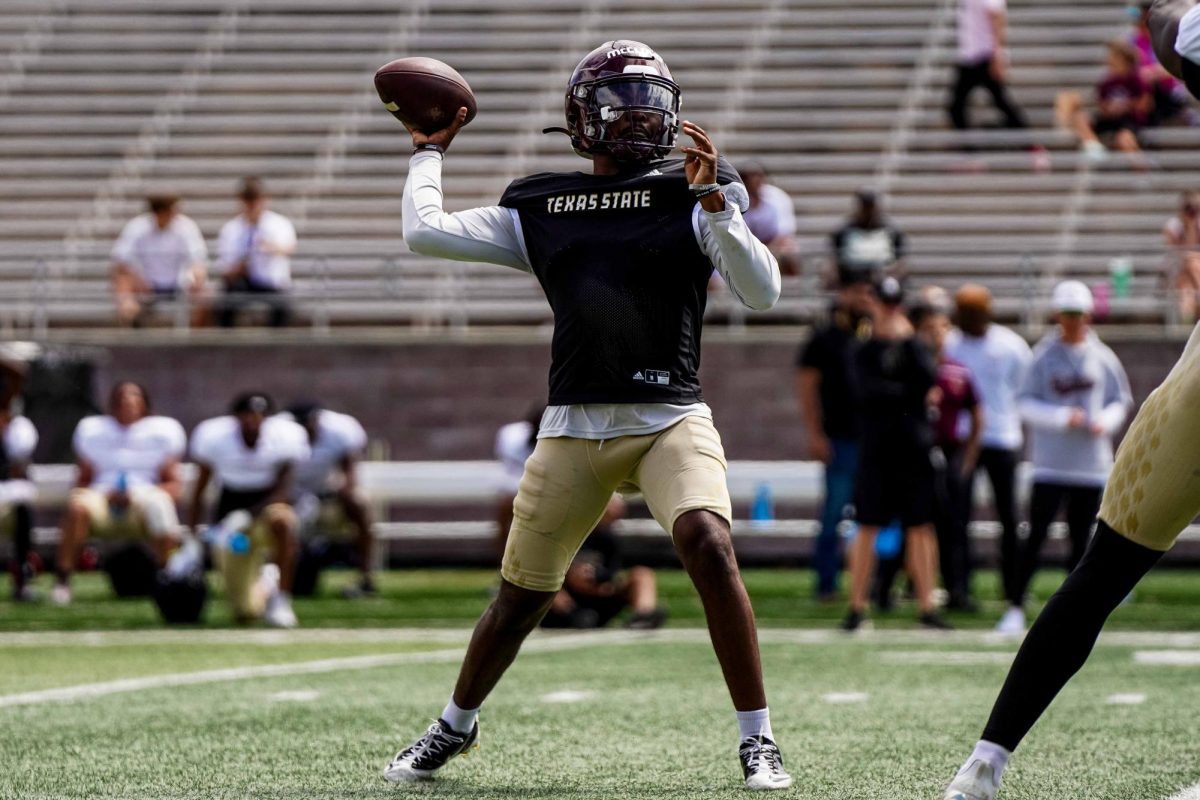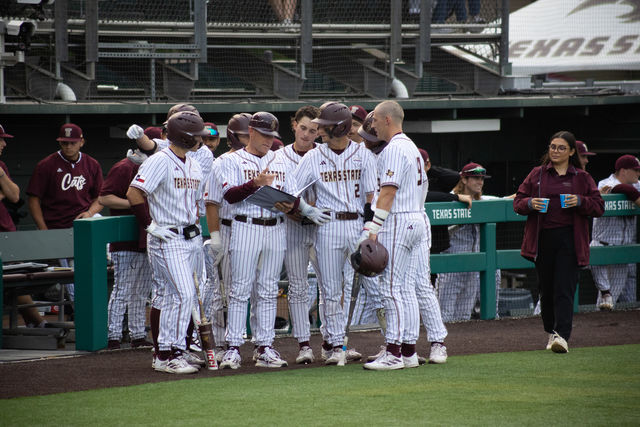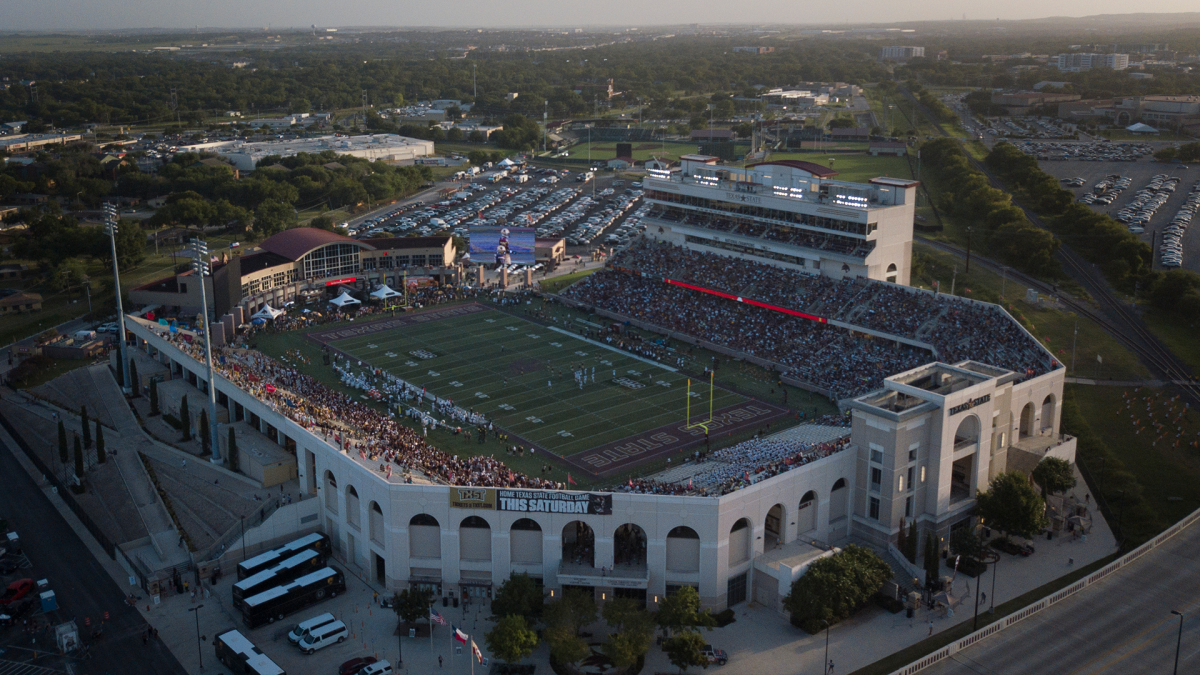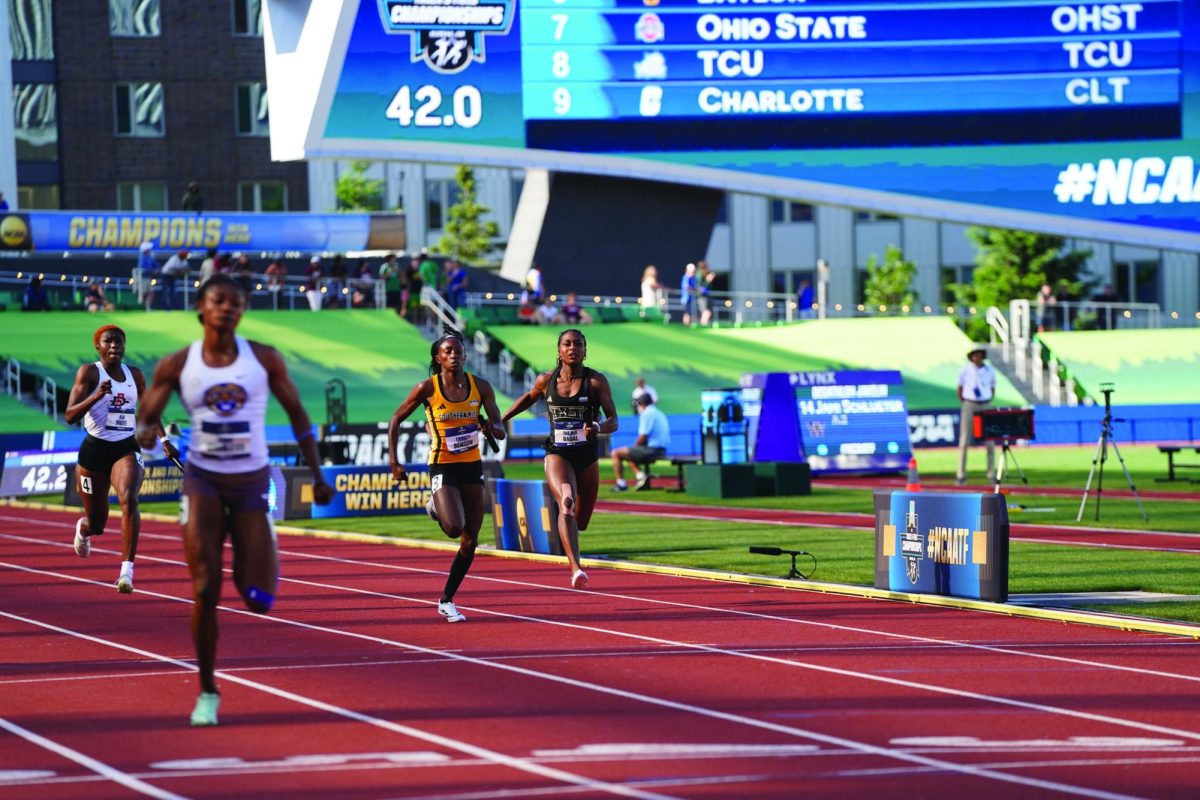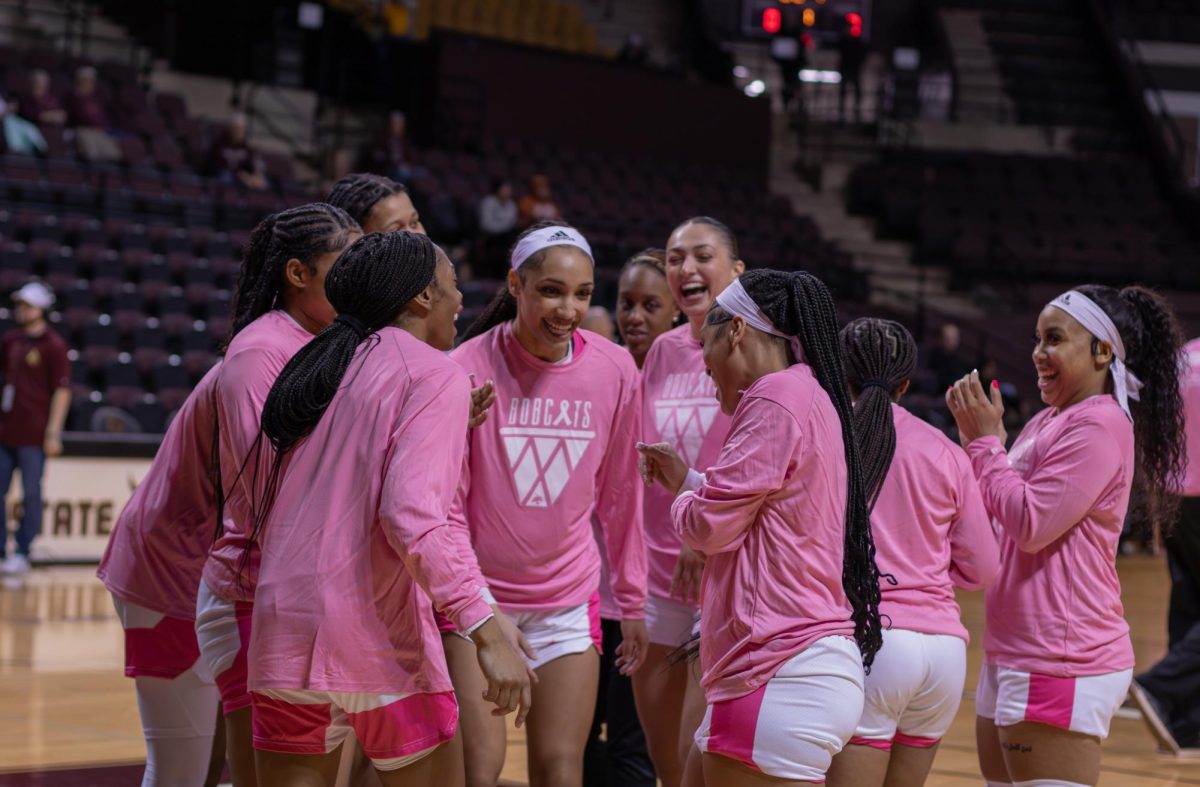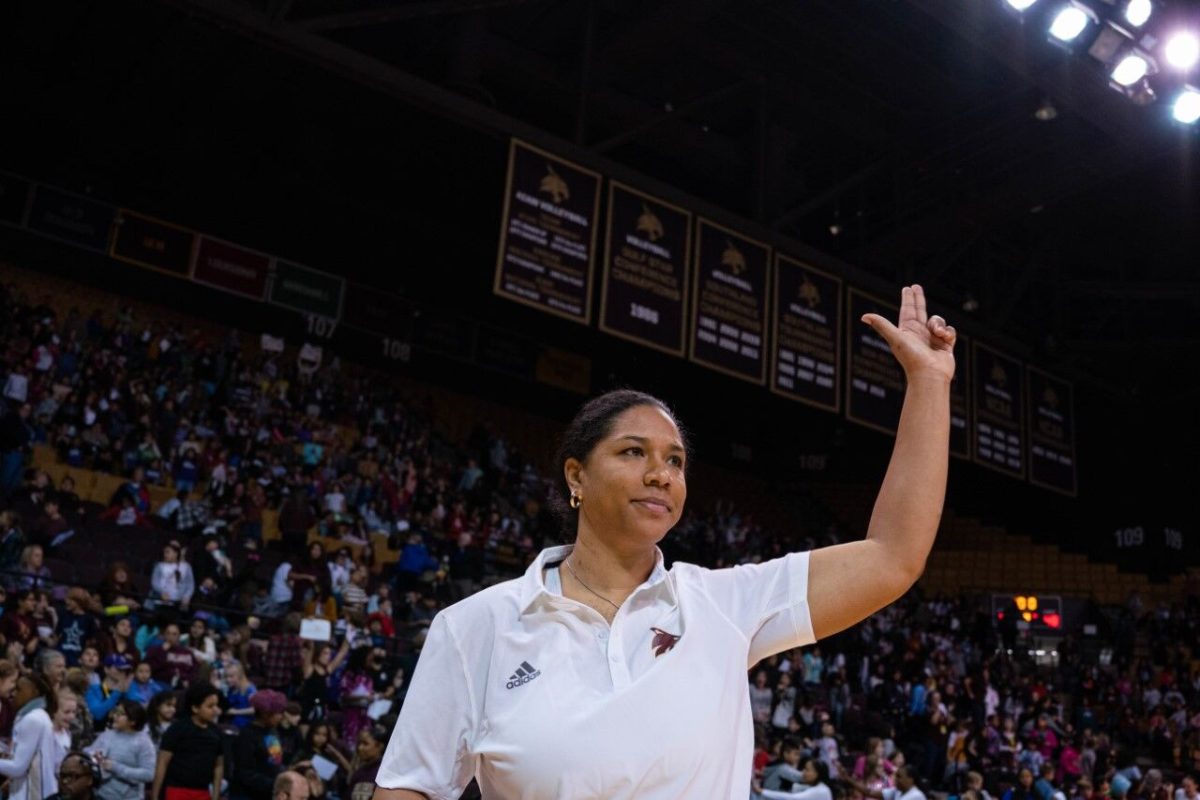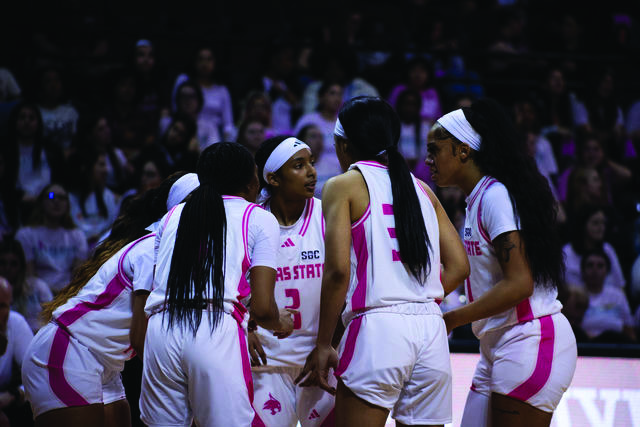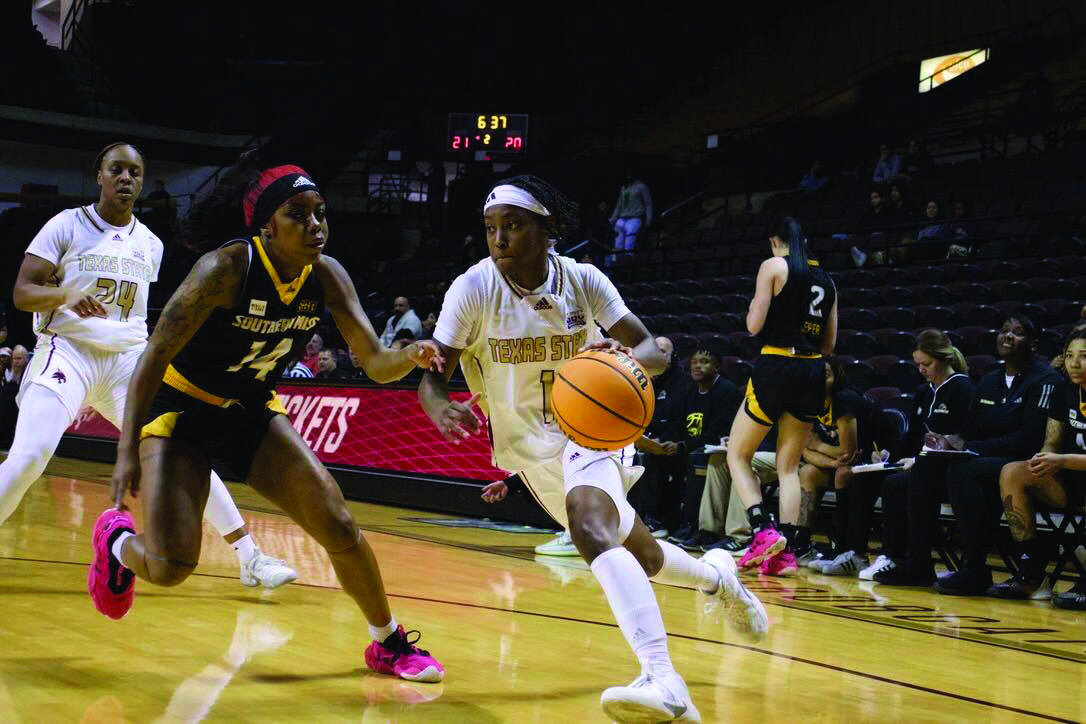Struggles with mental health in college, where students are tasked with finding their personal identity while transitioning into full adulthood, is no stranger to student-athletes who have Herculean responsibilities placed upon them after signing along dotted lines.
NBA players DeMar DeRozan and Kevin Love, Olympic swimmer Michael Phelps and Olympic gymnast Laurie Hernandez have openly talked about depression and the importance of having tough conversations. Student-athletes at Texas State, responsible for coursework, workouts and sustaining a personal life, also face mental battles when the spotlights are turned off.
Mental health is not lost upon women’s basketball Head Coach Zenarae Antoine. She is aware student-athletes carry the stress of both a college student and a college athlete.
“If you have poor mental health it can stifle you,” Antoine says. “What that looks like for the college student can be really difficult…so now you add into that being a student-athlete and the expectations with the training, expectations from their peers and their families and their coaches. That adds an additional stressor. Now you have to compound that with COVID and a lot of the social issues going on right now in the United States.”
Men’s basketball Interim Head Coach Terrence Johnson, on the other hand, assumed his position when former Head Coach Danny Kaspar resigned amid accusations of racism.
As a coach who prioritizes mental health, emotional health and physical health, Johnson chose to cancel the team’s first two practices after Kaspar’s resignation because it was not in the right state of mind for basketball.
“At the time, I did what I felt was necessary for the longevity of the team,” Johnson says. “I always think that there’s things that are much bigger than basketball. I’m certainly glad I did it and if I had to do it all over again, I would.”
Senior forward Isiah Small says he was told the importance of mental health by other coaches in the past, but this school year was the first time he had ever taken action to address his own.
“As you’ve grown up you think you Macho Man,” Small says. “All this counseling is not gonna help. You think, ‘I don’t need to talk to anyone about mental health. I’m good.’ But in reality, counseling helps so much. Not just with your mental, but it helps you look at other things from a different point of view.”
Small prides himself on being unfazed by day-to-day issues. He considers himself a generally positive and happy person who smiles no matter the circumstance. However, he is bothered by the idea of not living up to his own expectations.
“If I don’t give it my all each and every day, if I don’t make A’s and B’s, if I get a C, I would be upset,” Small says. “That would mess my mental up because I know I’m better than what I am. I would never lower my standards…It gets stressful a lot, but that’s why I keep my mind flowing. I keep it going. I read. I pray about it. I try to do my best just to keep myself going and try not to worry too much.”
In a largely patriarchal society, it is sometimes frowned upon for men to speak about their emotions or feelings, a mindset Small says he is all too familiar with. He was taught to remain strong and not show any signs of weakness.
“To me, that’s all like a myth,” Small says. “For me growing up they always said, ‘Men are not supposed to cry. Men are supposed to do everything right. You’re supposed to be this tough guy.’ In reality, as I started growing up I looked at it from a different standpoint. It’s okay for men to cry. It’s okay for you to mess up. It’s okay for you to go get counseling… It’s okay to have a soft spot.”
Antoine’s experiences as a coach have led her to believe an athlete’s socio-economic background also plays a part in how willing they are to open up about their struggles.
“Student-athletes that come from middle-class, upper-middle-class, that are able to have financial resources and health benefits, that have grown up having those opportunities, are generally more apt and open to the conversation,” Antoine says. “Others [may] not have had that opportunity — [others] may not know what’s available to them and feel comfortable discussing that.”
With the COVID-19 pandemic still raging, protocols have postponed games and forced athletes to sit out of competitions. For some teams, entire games have been canceled.
“You’re testing three-to-four times a week, and I can tell you as a coach: I’m on pins and needles,” Antoine says. “I know student-athletes, they are as well. You’re just waiting for that email or a phone call that ‘You got the green.’ Green means you’re negative, red means you’re positive. So just that anxiety of what that looks like is very stressful.”
Johnson and Antoine believe their players have benefited from a resource like Texas State’s Counseling Center, which at times is tasked with more than it can handle at once.
“The university Counseling Center has been really, really good,” Johnson says. “They’re just backed up. We have guys that have been seen by a university counselor last month and then won’t be seen by one until I think toward the end of January. If that particular kid had any more serious issues, we would probably have to find outside assistance or a private counselor.”
Johnson’s hope for the Athletic Department is that it will soon provide a clinical sports psychologist for teams. He says his players have broken ground since he took over head coaching duties, but resources are not always as readily available as needed.
“I think it’ll help because our guys would know there’s always somewhere to go to and someone to go to [who] they feel comfortable talking to — [someone] there for that reason,” Johnson says. “These guys are not reluctant to talk with somebody. The only thing is, a lot of times, these guys don’t know where to look, and they don’t know who to ask because they don’t want to expose themselves.”
‘Bigger than basketball’: Athletes, coaches reflect on importance of mental health
January 20, 2021
Donate to The University Star
Your donation will support the student journalists of Texas State University. Your contribution will allow us to purchase equipment and cover our annual website hosting costs.











